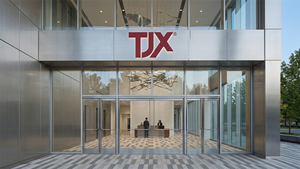Early Career Advisors and Career Switchers Now in Spotlight as Industry Confronts Talent Crisis
The wealth management industry is on a collision course with a talent crisis. Just as growing numbers of self-directed investors are seeking the help of financial advisors, nearly half (46%) of those advisors say they are within 10 years of retirement. In fact, more than one-fourth (26%) of current advisors are already 65 or older. According to the J.D. Power 2025 U.S. Financial Advisor Satisfaction Study,SM released today, the keys to attracting and retaining the younger advisors and career switchers who will carry the industry forward will be strategic investments in technology and brand-building.
“The wealth management industry is experiencing a significant generational shift in which the demographics, ways of working and priorities of both clients and advisors are changing rapidly,” said Mike Foy, managing director of the wealth management practice at J.D. Power. “How firms manage this transformation and the investments they make today in technology and branding will be critical to attracting, developing and retaining the next generation of advisors, and they will also set the stage for how their firms are perceived by the influx of new, younger clients now considering professional advice for the first time.”
Following are some key findings of the 2025 study:
- Artificial intelligence (AI) must drive lead generation and personalization: AI is the top technology in which advisors believe their firms should be investing, with 35% of advisors selecting it as the top priority for increased tech investment by the firm. As they are prioritizing AI use cases, firms should strongly consider areas such as lead generation and personalized client marketing and nurturing tools that early-career advisors highlight as areas of underinvestment. Overall satisfaction and brand advocacy scores also are significantly higher among advisors using AI tools.
- Younger advisors find brand image lacking: When asked to describe their firm’s culture, just 20% of advisors under age 40 said their firm was conscious of its public brand image, substantially trailing perceptions among older advisors (age 40-64), 35% described their firm as brand conscious. Fostering a trusted and relevant brand remains fundamental to a firm’s value proposition, especially among younger advisors who are building a practice and are not yet able to rely on existing client referrals to generate new business.
- Social media support for advisors needs improvement: Among top marketing support priorities, younger advisors place a significant emphasis on social media, advisor websites and search engine optimization rather than advisors with longer career tenure who are more focused on webinars and in-person events/seminars. Social media stands out as the only area of marketing support that early career advisors rank among the most important, as 45% selected it as a priority for investment. However, these advisors rate current firm support as below average, with just 32% saying support is “very valuable.”
Study Rankings
Among employee advisors, Stifel ranks highest in overall satisfaction for a third consecutive year, with a score of 819. Edward Jones (729) ranks second and Raymond James & Associates (722) ranks third.
Among independent advisors, Commonwealth ranks highest in overall satisfaction for a 12th consecutive year, with a score of 834. Raymond James Financial Services (741) ranks second, and Cambridge (686) ranks third.
See the rank chart for each segment at http://www.jdpower.com/pr-id/2025070.
The U.S. Financial Advisor Satisfaction Study measures satisfaction among both employee advisors (those who are employed by their broker dealer) and independent advisors (those who are affiliated with a broker-dealer but operate independently) based on six key dimensions (in alphabetical order): compensation; firm leadership and culture; operational support; products and marketing; professional development; and technology.
The 2025 study is based on responses from 3,698 employees and independent financial advisors and was fielded from December 2024 through April 2025.
For more information about the U.S. Financial Advisor Satisfaction Study, visit https://www.jdpower.com/business/financial-advisor-satisfaction-study.
About J.D. Power
J.D. Power is a global leader in consumer insights, advisory services, and data and analytics. A pioneer in the use of big data, artificial intelligence (AI) and algorithmic modeling capabilities to understand consumer behavior, J.D. Power has been delivering incisive industry intelligence on customer interactions with brands and products for more than 55 years. The world's leading businesses across major industries rely on J.D. Power to guide their customer-facing strategies.
J.D. Power has offices in North America, Europe and Asia Pacific. To learn more about the company's business offerings, visit JDPower.com/business. The J.D. Power auto-shopping tool can be found at JDPower.com.
About J.D. Power and Advertising/Promotional Rules: www.jdpower.com/business/about-us/press-release-info
View source version on businesswire.com: https://www.businesswire.com/news/home/20250716730448/en/
Contacts
Media Relations Contacts
Geno Effler, J.D. Power; West Coast; 714-621-6224; media.relations@jdpa.com
John Roderick; East Coast; 631-584-2200; john@jroderick.com




